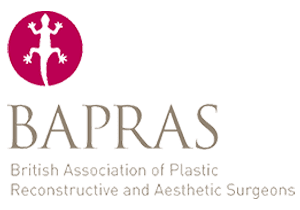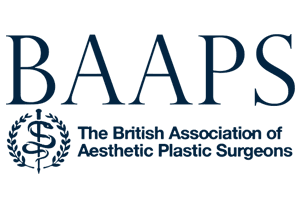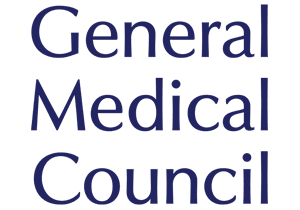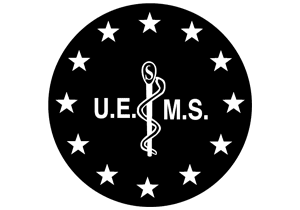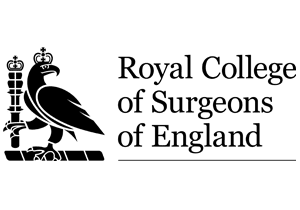
The Importance of Pre-Surgery Assessments in Cosmetic Surgery
When you’re considering cosmetic surgery or a dermatological procedure, your journey begins long before you step into the operating theatre or treatment room. At Cheshire Cosmetic Surgery, we believe that thorough pre-surgery medical tests and assessments are important steps on your path to achieving your aesthetic goals safely and effectively.
These pre-surgery evaluations serve as your personalised roadmap, guiding both you and your medical team towards the best possible outcomes. They’re not just routine checkboxes; they’re vital tools that help us understand your unique health profile and tailor our approach to suit your needs.
Our Commitment to Your Safety and Satisfaction
Your safety is our utmost priority. Consultant Plastic Surgeon Anca Breahna and Dr Dalia, our experienced dermatologist, are committed to providing you with the highest standard of care, which begins with comprehensive pre-surgery assessments. By taking the time to thoroughly evaluate your health before any procedure, we’re able to minimise risks and maximise the likelihood of achieving your desired results.
Our commitment extends beyond just the procedure itself. We’re dedicated to ensuring your entire journey with us—from your initial consultation through to your recovery—is as smooth and successful as possible. Pre-surgery tests play an important role in this commitment, allowing us to anticipate and prepare for any potential challenges.
Why Pre-Surgery Tests Are Necessary
Ensuring Your Overall Health
Pre-surgery tests provide us with a clear picture of your general health status. They allow us to confirm that you’re in optimal condition to undergo your chosen procedure safely. These assessments can reveal important information about your body’s functions, from your cardiovascular health to your immune system’s strength.
By thoroughly evaluating your overall health, we can make informed decisions about the timing of your procedure, the most suitable anaesthetic approach, and any special precautions we might need to take during your treatment and recovery.
Identifying Potential Risks
Every surgical or cosmetic procedure carries some level of risk, but many of these risks can be mitigated with proper preparation. Pre-surgery tests help us identify any potential issues that could complicate your procedure or recovery.
For instance, these tests might reveal underlying conditions you weren’t aware of, such as a tendency to bleed easily or an undiagnosed heart condition. By uncovering these factors in advance, we can take appropriate measures to ensure your safety, whether that means adjusting our surgical approach, recommending additional precautions, or in some cases, advising against the procedure until certain health issues are addressed.
Customising Your Treatment Plan
No two patients are exactly alike, and at Cheshire Cosmetic Surgery, we don’t believe in a one-size-fits-all approach. The information gathered from your pre-surgery tests allows us to create a treatment plan that’s tailored specifically to you.
This customisation goes beyond just the procedure itself. It includes your entire care journey, including your anaesthesia plan, post-operative medications, and recovery guidelines. By understanding your unique health profile, we can anticipate your needs and prepare accordingly, ensuring you receive the most appropriate and effective care at every stage of your journey.
- Medical History Review: This is crucial and always performed. It includes discussing past and current health conditions, medications, allergies, and previous surgeries or treatments.
- Physical Examination: A general health check and specific examination of the area to be treated.
- Blood Tests: These are not routinely required for all procedures, but may be recommended in some cases such as for more extensive surgical procedures, if the patient has certain pre-existing health conditions or if the patient is over a certain age (often 50 or 60, depending on the procedure).
- Blood Pressure Measurement: This is typically done as part of the physical exam.
- Electrocardiogram (ECG): Not routinely required for minor procedures. May be recommended for older patients or those with heart conditions, especially for more extensive surgeries.
- Pregnancy Test: For women of childbearing age, especially before procedures involving anaesthesia.
- Skin Assessment: Particularly important for dermatological procedures.
- Photography: Often used to document the pre-treatment condition for comparison.
Additional tests that might be considered in specific cases:
- Mammogram: Sometimes recommended before breast surgeries.
- Specialised Imaging: Such as CT scans or MRIs, but these are only used in very specific cases where detailed structural information is needed.
It’s important to note that the necessity and extent of pre-procedure tests can vary based on:
- The specific procedure being performed
- The patient’s age and overall health
- The type of anaesthesia being used
- The surgeon’s or dermatologist’s individual protocol
For many minor cosmetic procedures and dermatological treatments, a thorough medical history and physical examination are often sufficient. More extensive testing is typically reserved for more invasive surgical procedures or when indicated by a patient’s individual health factors.
Thorough Medical History Review
The foundation of your pre-procedure assessment is the medical history review. This important step allows Anca or Dalia to gain an understanding of your health profile. During this review, you’ll discuss:
- Your past and current health conditions
- Any medications or supplements you’re taking
- Known allergies, especially to medications or materials used in medical procedures
- Previous surgeries or cosmetic treatments
- Your family medical history, particularly concerning conditions that might affect your procedure or recovery
Be prepared to provide detailed information about your lifestyle habits, including exercise routines, diet, alcohol consumption, and smoking status. These factors can significantly influence your procedure’s success and recovery process.
Remember, honesty is essential during this review. Even details that might seem insignificant to you could be crucial for your safety and the success of your procedure. Your openness ensures that we can provide you with the most appropriate and safest care possible.
Comprehensive Physical Examination
Following the medical history review, you’ll undergo a physical examination. This examination serves two primary purposes:
- To assess your overall health and fitness for the procedure
- To closely examine the specific area(s) you’re considering for treatment
During the general health check, we’ll evaluate your:
- Vital signs (blood pressure, heart rate, temperature)
- Respiratory function
- Cardiovascular health
- General physical condition
The specific examination will focus on the area(s) relevant to your desired procedure. For instance, if you’re considering a facial treatment, we’ll carefully assess your skin quality, elasticity, and underlying structures. This targeted examination helps us understand your unique anatomical features and allows us to tailor the procedure to your individual needs.
Blood Tests
When deemed necessary, blood tests might include:
- Complete Blood Count (CBC): This test provides information about your overall health and can detect various disorders, including anaemia and infection.
- Coagulation Tests: If you’re taking blood thinners or have a history of bleeding disorders, these tests assess your blood’s ability to clot properly.
- Basic Metabolic Panel: This test evaluates your kidney function, electrolyte balance, and blood sugar levels.
Rest assured, we only recommend these tests when they’re truly beneficial for your safety and the success of your procedure.
Your Role in the Process
Your active participation in the pre-procedure assessment process is important. Here’s how you can help:
- Be thorough and honest when discussing your medical history.
- Prepare a list of all medications and supplements you’re taking.
- Don’t hesitate to ask questions about any part of the assessment or upcoming procedure.
- Follow any pre-assessment instructions carefully, such as fasting before blood tests if required.
Remember, these assessments are all about ensuring your safety and optimising your results. By working together through this process, we can create a treatment plan that aligns perfectly with your health needs and aesthetic goals.
FAQs about Pre-Surgery Medical Tests
How long before my procedure should I have these pre-surgery tests done?
- Timing can vary depending on the specific procedure and your individual health circumstances. Generally, we recommend having your pre-surgery tests completed 2-4 weeks before your scheduled procedure date. This timeframe allows us to thoroughly review the results and address any concerns without causing unnecessary delays to your treatment plan. However, some tests may need to be more recent, particularly for certain blood work. We’ll provide you with a precise schedule during your consultation.
Will my insurance cover the costs of these pre-surgery tests?
- As most cosmetic procedures are elective, many insurance plans don’t cover associated costs, including pre-surgery tests. However, if a test reveals a health issue unrelated to your cosmetic procedure, your insurance might cover follow-up care for that condition. We recommend checking with your insurance provider about coverage. At Cheshire Cosmetic Surgery, we strive to be transparent about all costs involved in your treatment journey and can provide detailed information about test expenses during your consultation.
What happens if the pre-surgery tests reveal a health issue I wasn’t aware of?
- Discovering an unknown health issue can be concerning, but it’s one of the key benefits of thorough pre-surgery screening. If we identify any health concerns, we’ll discuss them with you promptly. Depending on the nature of the issue, we might recommend further evaluation by your GP or a specialist. In some cases, we may need to postpone your procedure until the condition is properly managed. Rest assured, our primary goal is your overall health and well-being, and we’ll guide you through any necessary steps.
Can I eat or drink before my pre-surgery tests?
- The requirements can vary depending on the specific tests you’re having. Some blood tests, for instance, require fasting for 8-12 hours prior, while others don’t. We’ll provide you with detailed instructions when scheduling your tests. If you’re unsure or have concerns about fasting (for example, if you’re diabetic), please don’t hesitate to ask us for clarification. It’s important to follow these instructions carefully to ensure accurate test results.
I’ve recently had some medical tests done for another reason. Can I use those results instead of having new tests?
- In some cases, we may be able to use recent test results, particularly if they’re comprehensive and were conducted within the last six months. However, this depends on the type of tests, how recent they are, and the specific requirements for your planned procedure. Please inform us about any recent tests during your consultation and bring copies of the results if possible. We’ll review them and let you know if they’re sufficient or if we need to conduct additional testing. Keep in mind that certain tests, like ECGs for older patients or those with heart conditions, may need to be more recent to ensure they reflect your current health status accurately.
Further Reading about Procedures at Cheshire Cosmetic Surgery
- Read more about Your Patient Journey
- Read more about Tips for Recovery and Aftercare
- Read more about Preparing for Your Surgery
- Read more about Risks and Complications of Surgery
- Read more FAQs
References for Pre-Surgery Medical Tests
- Tests and visits before surgery: MedlinePlus Medical Encyclopedia
- Preoperative investigations for elective surgical patients in a resource limited setting: Systematic review
- Preoperative investigation practices for elective surgical patients: clinical audit
- Guidelines for preoperative investigations for elective surgery at Queen Elizabeth Hospital: effects on practices, outcomes, and costs
- Preoperative risk evaluation of adult patients for elective, noncardiac surgical interventions

 Dr Dalia obtained her medical degree from Queen Mary University – Barts and the London School of Medicine and Dentistry, graduating with a distinction and being awarded University of London Gold Medal in Medicine (Proxime Accessit) and the Glanfield Harris Best of Gold Medalists 2012-2013 award.
Dr Dalia obtained her medical degree from Queen Mary University – Barts and the London School of Medicine and Dentistry, graduating with a distinction and being awarded University of London Gold Medal in Medicine (Proxime Accessit) and the Glanfield Harris Best of Gold Medalists 2012-2013 award.